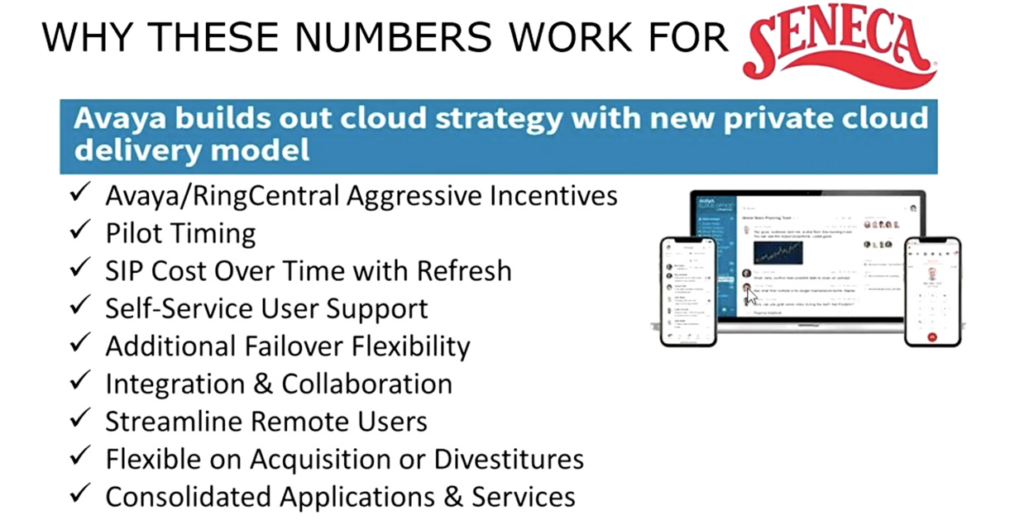Moving to Avaya Cloud Office (ACO) can bring significant benefits, according to a North American IT professional who presented his company’s experience as a case study at IAUG Wired. In a presentation, “Avaya Cloud Office Versus Traditional On-Premise Avaya Communication Manager,” Tim Eddinger, enterprise networks manager, Seneca Foods, greater user collaboration tools, an integrated approach to communication services and a reduced administrative burden for the IT team were key advantages.

A new cost structure
With 33 locations in the northern U.S., Seneca Foods was planning a move to SIP to 2018, but that modernization plan was slowed by the pandemic. However, the recent relocation of the corporate headquarters led to a decision to begin an ACO proof of concept at that location, according to Eddinger.
The challenges of moving the cloud will probably seem familiar to IAUG members: organizational resistance to change, providing 24/7 day-to-day support, handling high season call volume, a new cost structure and a doable migration path.
On the financial side, Eddinger found the total cost of ownership (TCO) for ACO was about $6,000 a month higher than for SIP, based on the company’s 1,200 stations. However, the SIP cost over time with refresh increased that side of the equation. Also, the implementation cost for ACO was about $3,000 less than a move to SIP. “Avaya and RingCentral worked with us to help make the numbers work,” Eddinger said. “They also stood up a SIP line for us to smooth the transition.”
For Seneca Foods, the key benefits include reduced system management and user self service capabilities, which allow the IT team to focus more resources on enterprise issues, Eddinger said. “Giving our people that ability to do their own support is great,” he added. “We can also streamline the communication process for remote users.”
Going to ACO also provided mobile phone integration and greater failover capabilities while facilitating user collaboration, Eddinger said. “One of the big things for us was keeping a familiar handset, which makes it easier for our team,” Eddinger said. “The ACO training includes many self-modules, which accelerate user acceptance.”
Finally, the ACO platform gives Seneca Foods added flexibility for acquisitions, Eddinger said. “We can bring new companies into the Seneca environment right away. Or if we divest a company, we can sell or transfer those licenses. For all these reasons, ACO is a good fit for our organization.”
